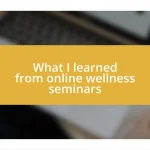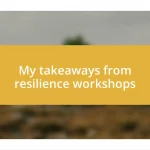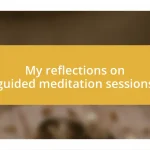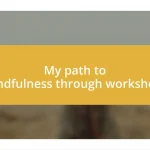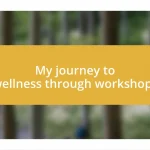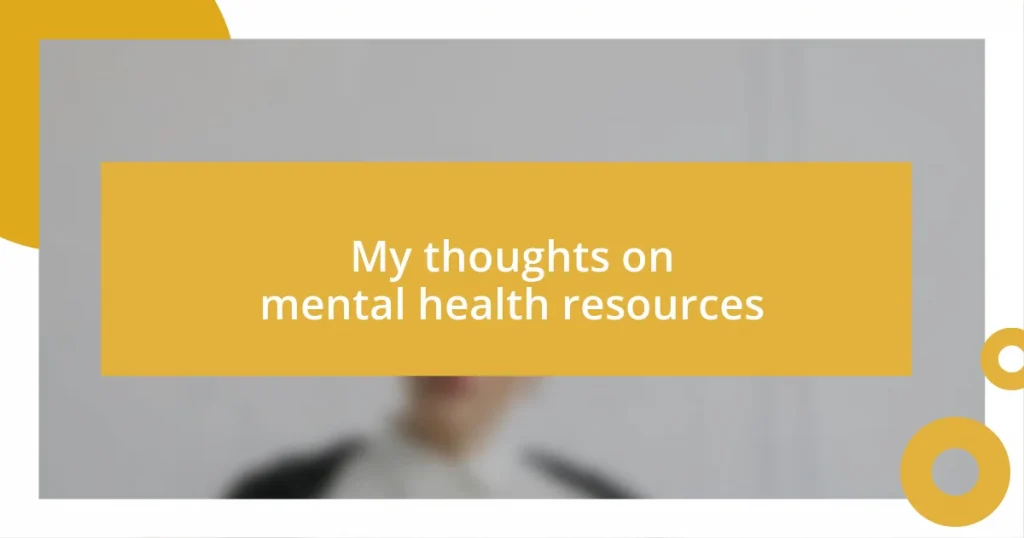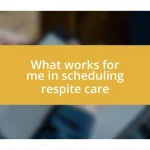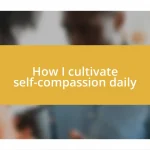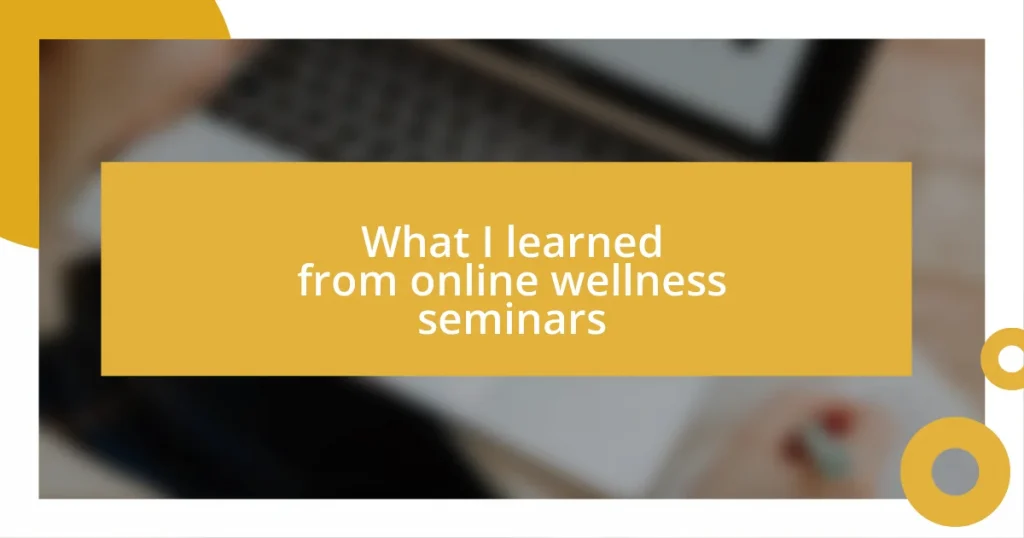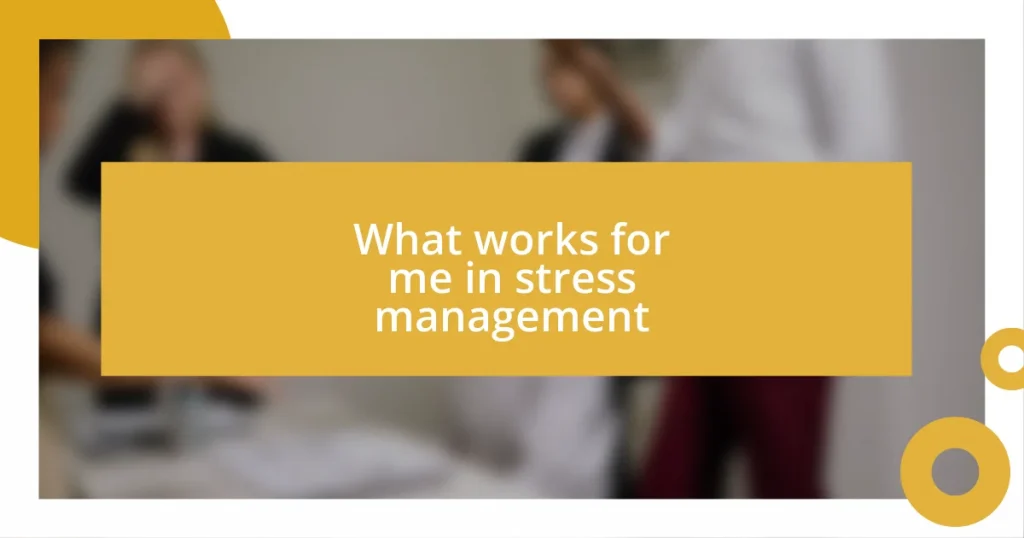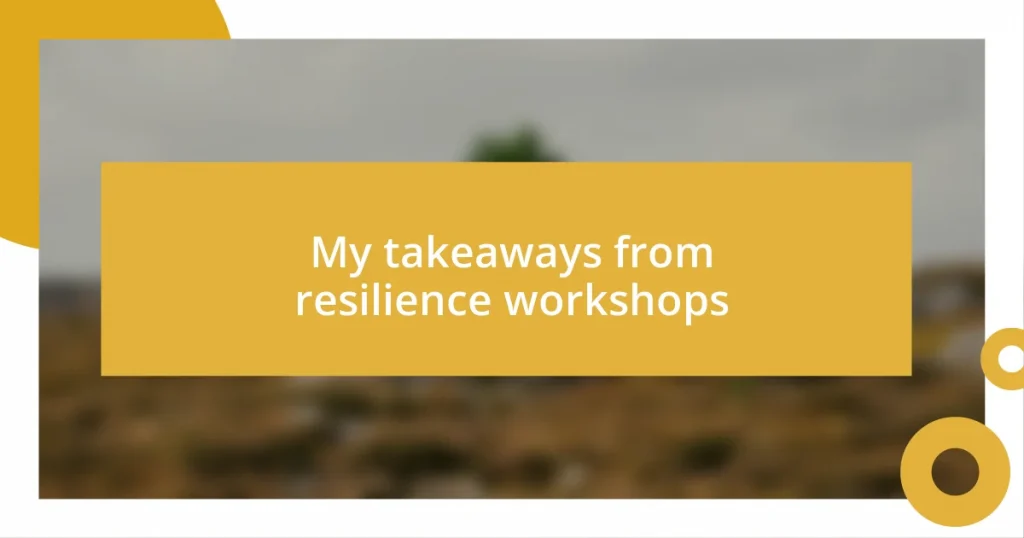Key takeaways:
- Understanding mental health resources, including therapy, hotlines, and community programs, empowers individuals to take action in their healing journey.
- Online resources such as therapeutic apps and virtual support groups offer accessible support and foster a sense of community, especially when professional help is not immediately available.
- Community support plays a crucial role in alleviating feelings of isolation and encourages shared healing through collective experiences and outreach initiatives.
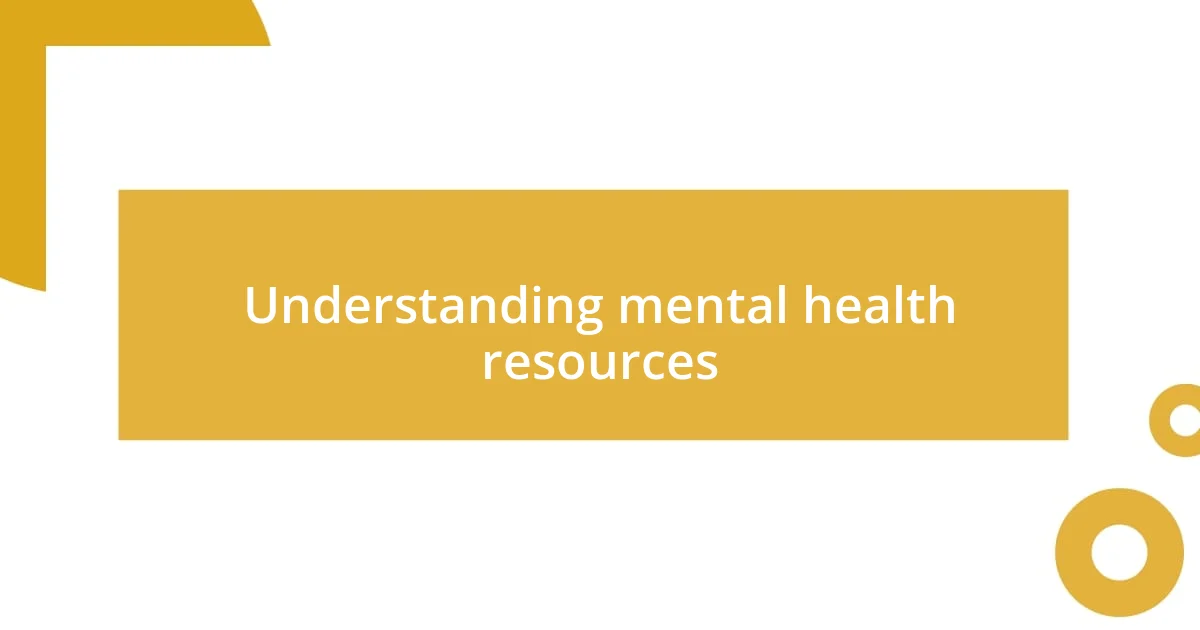
Understanding mental health resources
When I first started exploring mental health resources, I felt overwhelmed by the sheer number available. Have you ever been confused about where to turn for help? It’s a common feeling, and it often leads to inaction. Understanding what’s out there—therapy, hotlines, community programs—can be your first step toward healing.
I recall when a friend of mine faced anxiety and didn’t know about the wide variety of resources available. After some research, we discovered online therapy options that suited her needs and even a local support group. This experience opened my eyes to how essential it is to have access to diverse resources tailored to individual situations. Isn’t it interesting how one person’s experience can highlight the importance of knowing what options exist?
Learning about mental health resources isn’t just about collecting information; it’s about empowering yourself or someone you care about. Consider how knowledge can transform feelings of isolation and helplessness. When I finally understood the importance of these resources, I felt more equipped to tackle my own mental health journey. Isn’t it comforting to know that help is available, tailored to meet different needs?
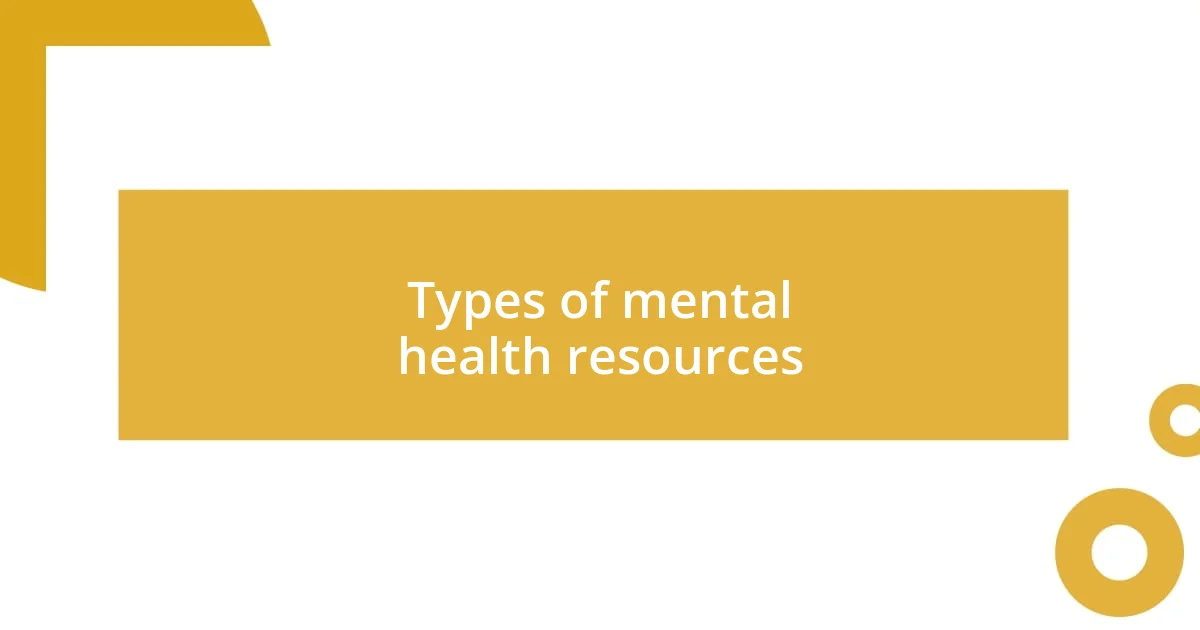
Types of mental health resources
Therapy is one of the most recognized mental health resources, offering various modalities such as cognitive-behavioral therapy (CBT) and mindfulness-based therapy. I remember my first therapy session; I was nervous but soon realized it was a safe space to express my feelings. The personalized approach in therapy can genuinely help individuals navigate their mental health challenges by tailoring techniques to fit their unique situations.
Hotlines provide immediate support and can be a lifeline during a crisis. I once called a hotline during a particularly overwhelming time, and the experience was eye-opening. The trained professionals on the other end offered empathy and practical advice, demonstrating how sometimes, just having someone to talk to can make a significant difference.
Community programs are an often-underestimated resource that fosters connection through support groups, workshops, and outreach initiatives. I still remember attending a local mental health workshop, which allowed me to meet people who were facing similar challenges. Engaging with a community can alleviate feelings of isolation, and sharing experiences in a group setting can be incredibly empowering. It’s amazing how coming together can lighten the emotional load we carry.
| Type of Resource | Description |
|---|---|
| Therapy | Personalized sessions addressing specific mental health issues through various modalities. |
| Hotlines | Immediate, accessible support for individuals in distress or crisis. |
| Community Programs | Support groups and workshops that foster connection and shared experiences. |
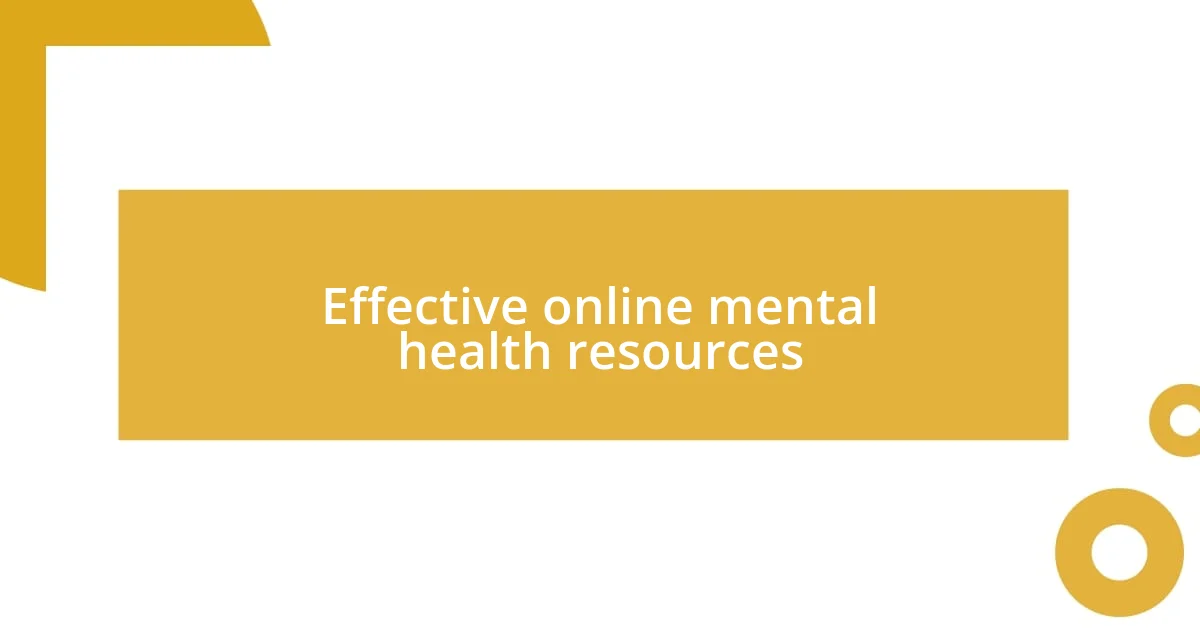
Effective online mental health resources
Effective online mental health resources can truly transform one’s journey toward well-being. I remember the relief I felt when I discovered mental health apps designed for mindfulness and mood tracking. They were easily accessible and offered practical exercises that helped ground me during stressful days. Plus, the ability to access guided meditations or journaling prompts anytime made me feel like I had support just a click away.
Here are some of the most effective online mental health resources I’ve encountered:
- Therapeutic Apps: These often include features like guided meditations, mood trackers, and cognitive-behavioral techniques tailored for self-help.
- Online Therapy Platforms: Connecting with licensed therapists through platforms like BetterHelp or Talkspace allows for flexibility and anonymity, making it easier to seek help.
- Virtual Support Groups: Engaging with others facing similar challenges on platforms like 7 Cups can create a sense of belonging and shared understanding.
- Educational Websites: Resources like NAMI and MentalHealth.gov provide in-depth articles and toolkits that empower individuals to better understand mental health issues.
- Podcasts: Listening to discussions about mental health topics can be both enlightening and comforting, as they often feature personal stories that resonate.
These resources have been essential for many, including myself, in bridging the gap when professional help isn’t immediately accessible. The sense of community and knowledge they provide makes navigating mental health less daunting.
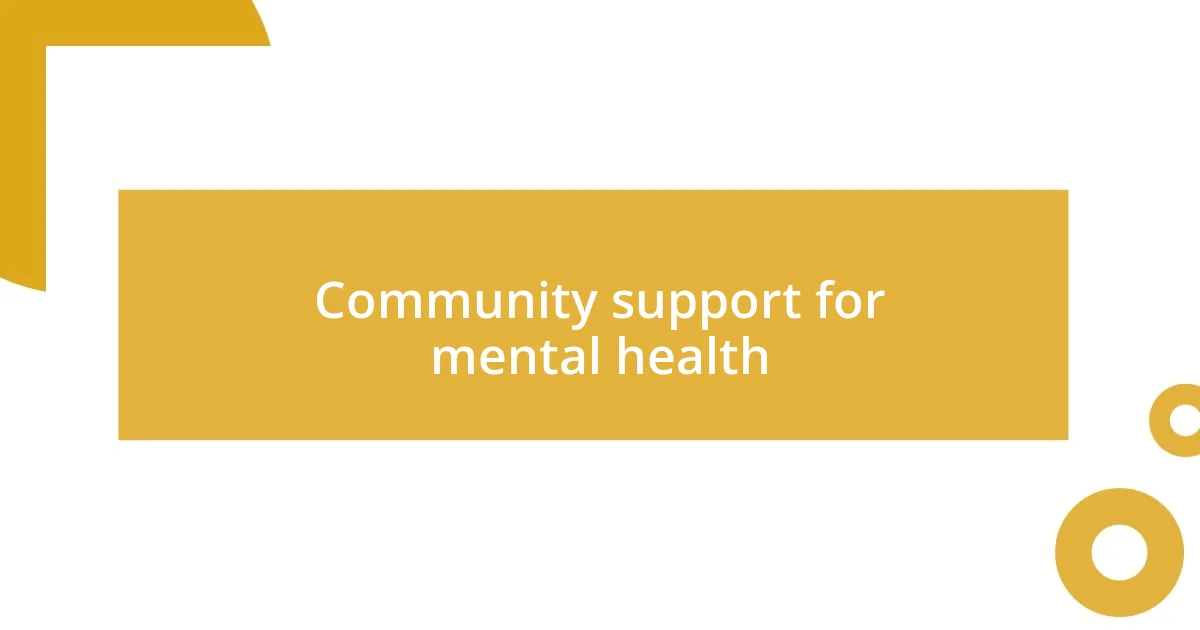
Community support for mental health
Community support for mental health is a game changer in many people’s lives. I’ve participated in local support groups, and the camaraderie felt like a warm blanket during difficult times. Sharing stories with others who understood my struggles created a bond that alleviated the sense of isolation I often felt—it’s powerful to know you’re not alone in your journey.
What truly struck me during these gatherings was how each person brought a unique perspective, which contributed to a collective healing experience. One evening, someone shared their coping strategy, and it inspired me to try something new in my own mental health toolkit. The exchange of experiences not only encouraged understanding but often left me feeling energized, as though we were all in this together, supporting one another.
Moreover, community outreach initiatives often provide resources that extend beyond just support groups. I once attended an awareness event organized by a local mental health organization. It was enlightening to see how many people showed up to learn and support the cause. Seeing so many dedicated individuals working to reduce stigma reminded me of the profound impact a community can have; sometimes, we all need that extra push to reach out and seek help when we might feel hesitant. Isn’t it remarkable how collective support can empower individuals to take the first step toward healing?
